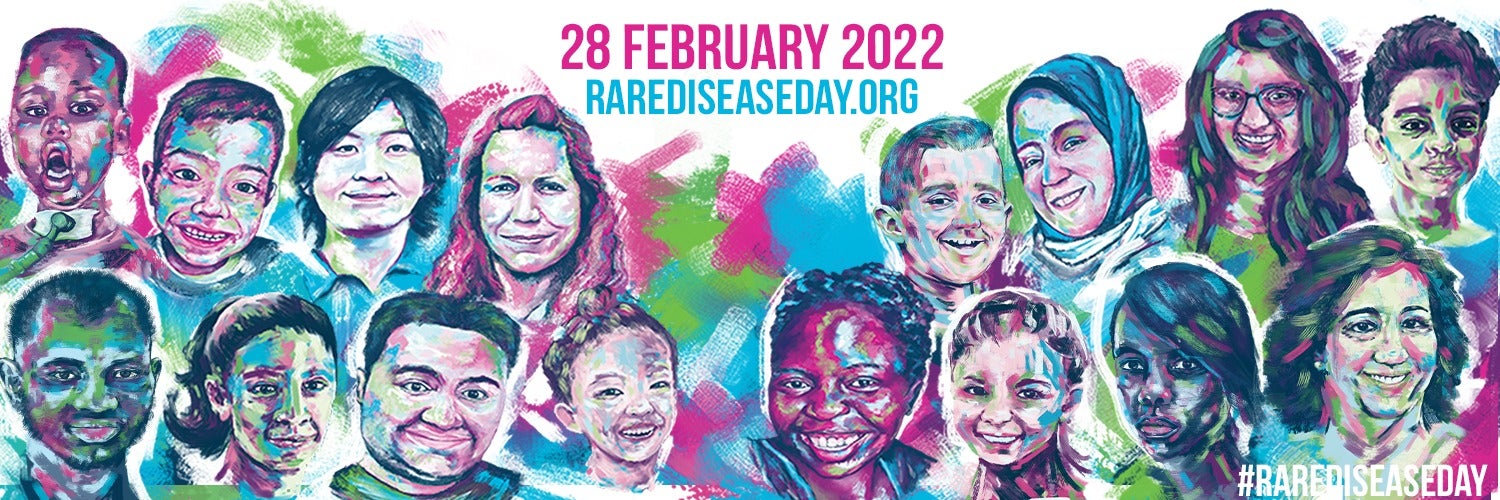Medidata Blog
Rare Disease Day – A Wonderful Opportunity to Raise Awareness for Rare Disease Patients

Rare Disease Day takes place on February 28. It’s a day for rare disease patients, families, caregivers, physicians, and researchers to come together to support equal access to diagnostics, treatments, and health care, and to promote social opportunities for those affected by a rare disease.
Current estimates indicate that there are more than 7,000 rare diseases that affect one in ten individuals across the world. This staggering statistic means there are 400 million people living with a disease that is often difficult to diagnose, treat, and manage. In addition, Rare Disease Day provides an opportunity to spread awareness of the importance of investing in rare disease research, such as the following:
- Rare diseases impact more people globally than cancer and HIV/AIDS combined
- 500 rare cancers and 7,000+ rare diseases have been identified
- Eighty percent of rare diseases are genetic. The rest are due to infections, allergies, environmental causes, or rare cancers
- Fifty percent of rare diseases begin in childhood
- One in three children affected by a rare disease will not live to see their fifth birthday.
Patients with rare diseases face many challenges throughout their lives. To begin, it takes on average six to eight years to obtain a correct diagnosis. Then patients often struggle to find experienced doctors and treatment centers. Even if they find qualified doctors, many rare disease patients have limited or no treatment options. Although the FDA has approved drugs and biologics for more than 800 rare disease indications, this means a significant number of rare diseases do not have an approved treatment. The encouraging news is that the FDA’s Orphan Products Grants Program, which awards grants to support the development of products for patients with rare diseases, has seen a steady increase in the annual number of orphan drug designation requests over the past decade, which has been greater than 500 annually since 2016. In 2020, the FDA received 753 new requests for designation.
There are several recognized challenges when it comes to rare disease drug development and commercialization, including a lack of knowledge of many rare diseases, limited patient pool and poor retention, limited data, and clinical trial execution, as well as commercial challenges like diagnosis, access, reimbursement, and medication adherence. Educating patients, physicians, and caregivers on the intricate dosing regimens that often come with rare disease treatments requires drug manufacturers to collect, organize, and integrate patient-level data at a massive scale—not only at a clinical level, but in the real world.
Many companies working on rare diseases don’t have the financial resources or commercial infrastructure to synthesize all of their data fast and accurately enough to produce the insights needed to guide their clinical and commercial activities. In order to get these life-altering drugs to patients, they rely on trusted, experienced partners, like Medidata Acorn AI, to act as extensions of their clinical and commercial teams as they grow.
The data expertise and technological capabilities that Acorn AI brings to a partnership is the key to finding the right patients for a drug trial, to getting more patients on therapy once it’s approved, and maintaining medication adherence, which ultimately leads to our goal of healthier patient outcomes.
Technology that enhances both the patient experience and quality data collection is critical to ensuring the success of rare disease clinical trials and getting the drugs into the hands of the larger patient population. For instance, implementing eConsent, virtual study visits, and dosing schedule reminders provides these patients with flexibility and reduces the burden on patients and site resources. Embarking on a rare disease clinical trial and eventual commercial launch presents unique challenges. However, building an effective clinical and commercialization strategy as early as possible provides the best opportunity for success.
Medidata, a Dassault Systèmes company, supports patients on Rare Disease Day. Medidata is working to expedite rare disease clinical trials and commercialization to improve patient outcomes. Medidata is advancing the mission of getting rare disease therapies to the people who need them most—one patient at a time—by supporting more than 1,800 rare disease studies with nearly 300,000 enrolled patients.
Medidata has also partnered with key rare disease organizations to help them accelerate their research and get desperately needed therapies to patients faster. These include:
- Castleman Disease Collaborative Network: This collaboration was the first to use serum proteomics data to identify early indicators of response to treatment in Castleman disease by using machine learning technology.
- Project ALS: The goal of this partnership is to accelerate new treatment strategies and to uncover disease subtypes in this progressive, neurodegenerative disorder by analyzing clinical and proteomic data.
- National Organization for Rare Disorders (NORD): NORD is the leading patient advocacy organization for rare diseases. Medidata is a corporate council member and part of the Patient Advocacy and Engagement Working Group.
Click here to discover how Medidata can accelerate your rare disease clinical trial.

